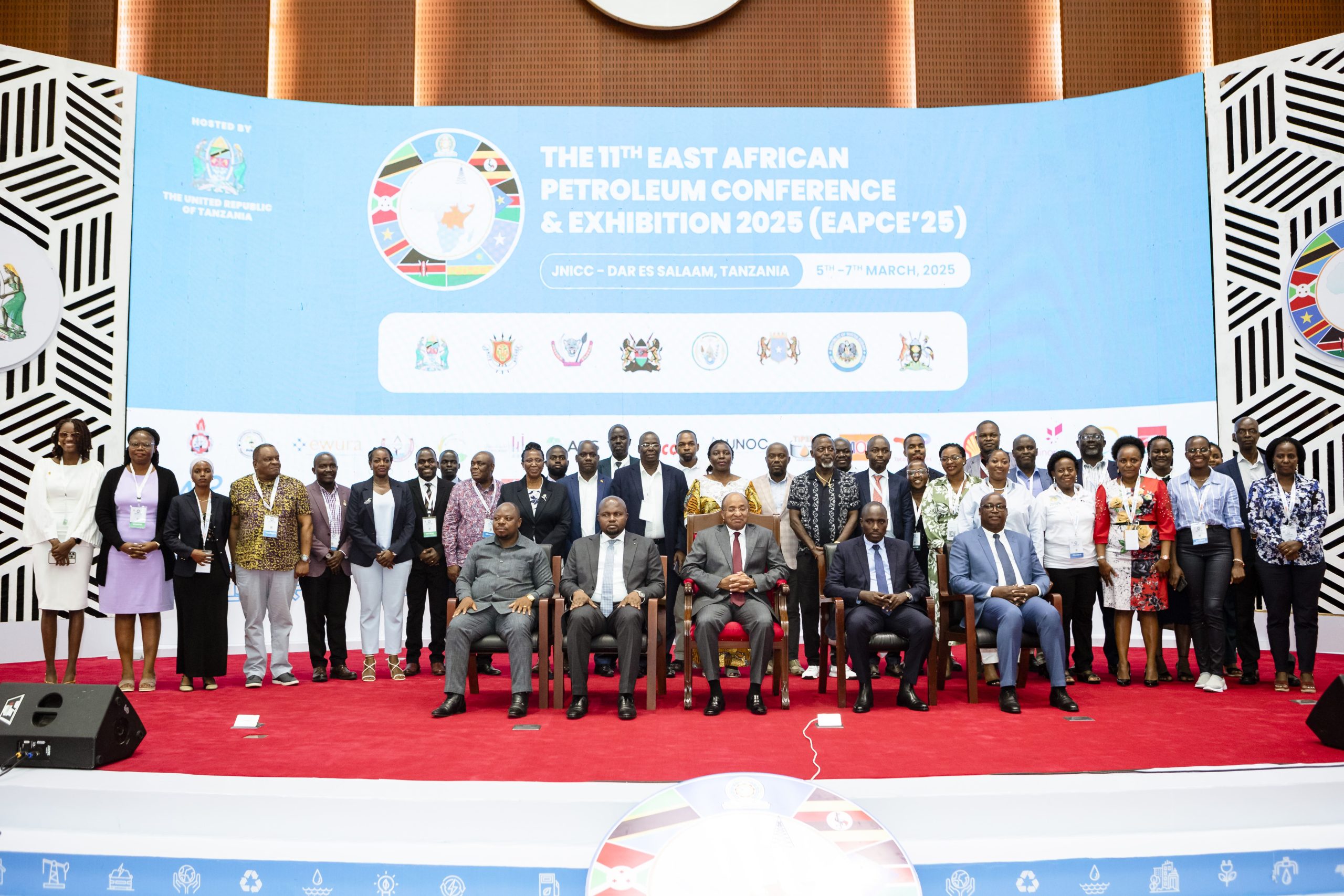
By Grace Kenganzi
The 11th East African Petroleum Conference and Exhibition (EAPCE 2025), hosted in Dar es Salaam, Tanzania, served as a platform for regional cooperation, investment promotion, and energy security and transition discussions. Under the theme “Unlocking Investment in Future Energy: The Role of Petroleum Resources in the Energy Mix for Sustainable Development in East Africa,” the conference brought together government leaders, investors, policymakers, and industry experts to chart a path for East Africa’s petroleum industry.
The event showcased the region’s commitment to harnessing its petroleum resources while balancing the energy transition agenda from legal and fiscal frameworks to stakeholder engagement, financing, and sustainable energy solutions.
Balancing petroleum development with energy transition
One of the most debated topics at EAPCE 2025 was how East Africa can balance petroleum development with its energy transition commitments. Speakers reinforced that oil and gas remain crucial to East Africa’s energy security and industrialisation.
“The significant progress made in exploration, including in the Kasuruban Contract Area, confirms that the country is on a path to sustainable development, with irreversible steps taken toward realising our petroleum potential,” Hon. Dr Can. Ruth Nankabirwa Ssentamu, the Minister of Energy and Mineral Development said, stressing that Uganda’s oil and gas projects are irreversible.
Speakers also illustrated how natural gas and cleaner fuels can serve as a transition bridge to renewable energy adoption.
“We should be mindful that the oil and gas sector has a pivotal role in the energy transition agenda,” Hon. Dr Hussein Ali Mwinyi, President of Zanzibar, noted during the conference’s closing remarks.
Energy access initiatives, such as using liquefied petroleum gas (LPG) as a cleaner cooking solution or compressed natural gas (CNG) as an alternative fuel source for vehicles and rural electrification funded by petroleum revenues, are essential to economic growth and social development. A notable case study came from Tanzania, where petroleum funds have successfully supported the Rural Electrification Fund, expanding electricity access to remote communities.
Strengthening regional investment and infrastructure development
Another highlight of EAPCE 2025 was the need for increased investment in oil and gas exploration, infrastructure, and regional energy projects. As the global energy transition accelerates, traditional financiers are withdrawing support for African oil and gas projects, citing climate change concerns. However, speakers at EAPCE 2025 argued that Africa must develop its petroleum resources responsibly while securing alternative funding mechanisms.
For instance, the African Petroleum Producers Organisation and Afreximbank have partnered to establish the African Energy Bank, designed to address the financing gap in the African oil and gas industry. A call was made for East African nations to consider a similar funding mechanism, ensuring that petroleum development remains a pillar of regional economic growth.
Hon. Dr Mwinyi this urgency in his remarks: “Insufficient funds are a big problem for the sector. Export credit agencies are increasingly hesitant to support petroleum projects. We must ask ourselves: how do we, as partner states, overcome this challenge? How can we advance our petroleum resources while implementing our energy transition plans?”
One of the proposed solutions was the establishment of a Petroleum Fund, as outlined in Article 114 of the EAC Treaty, which calls for joint and efficient management of natural resources for mutual benefit. Infrastructure such as the East African Crude Oil Pipeline (EACOP), a landmark project connecting Uganda’s oil fields to Tanzania’s coast, is an example of investment that arises from cross-border cooperation.
Several speakers also argued for aggressively promoting investment opportunities in the region, participating in global petroleum roadshows, and engaging with multi-client companies to unlock the region’s hydrocarbon potential.
Using sound legal and regulatory frameworks to attract investors
One of the pillars noted as a factor for attracting investment to the region’s petroleum sector was legal, fiscal, and regulatory clarity. Ms Lynda Biribonwa, the Chairperson of the Petroleum Authority of Uganda (PAU)’s Board of Directors emphasised Uganda’s efforts to align regulatory frameworks with global best practices. This includes ensuring transparent and competitive licensing rounds, predictability for investors through stable fiscal terms, and strict adherence to environmental and governance standards.
Harmonising regulations across the East African Community (EAC) would, therefore, streamline investment and encourage cross-border oil and gas projects.
EAPCE 2025 reaffirmed that with sound policies, collaboration, and investment, East Africa’s petroleum sector can drive economic prosperity while transitioning toward a more sustainable energy future.
Grace Kenganzi is a Senior Corporate Affairs Officer at the Petroleum Authority of Uganda
Email: corporateaffairs@pau.go.ug
